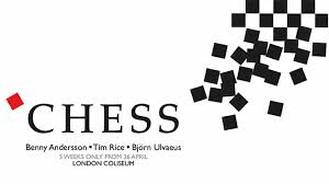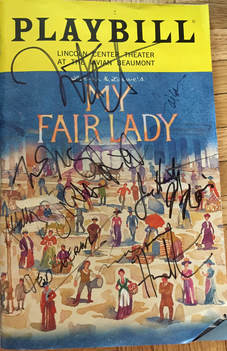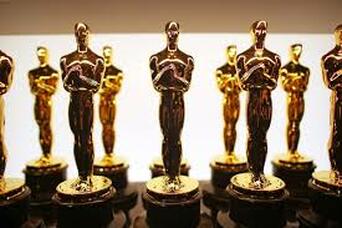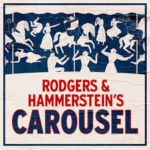 “Chess” on the West End: Great Music in a Weird AF Productionby Randi / May 24, 2018
“Chess” on the West End: Great Music in a Weird AF Productionby Randi / May 24, 2018I always felt that I knew “My Fair Lady” really well, even though I don’t even remember even seeing the movie. But the score is part of mainstream culture and you know the original story if you’re alive/have read mythology/have read Shaw/have read anything really/seen Freddie Prinze Jr. movies – haughty gentleman takes a bet that he can transform a poor, lower class girl into a well-mannered, well-spoken lady who can pass for upper class. Given that the framework here is of a story we’ve seen in one form or another, I expected to enjoy a high quality production but not be blown away. What could they do to make this simple story seem important? Well, a lot. I don’t know what I was thinking, because of course it was another perfect Lincoln Center + Bartlett Sher production of a classic musical, mining every ounce of emotion and intelligence and creating an experience so sublime and emotionally challenging that I’m still thinking about it constantly. I thought I knew “My Fair Lady”, but this production proved that I did not know what it was capable of. It’s one of those theatre events that I feel supremely lucky to have witnessed.
Most of the expert, meticulous perfection comes from the cast and the director, Bartlett Sher, who knows his way around a golden age classic as well as he does the Vivian Beaumont theatre. It’s well-written too, of course – this show has been so beloved for so long for a reason – but this production takes those bones and makes more of them than I could ever have predicted. The simple story, the question of how successful Henry Higgins’s training will be and how strong Eliza’s Stockholm Syndrome will become, all feel so much more complicated and important. From the first moment we meet our Eliza Doolittle (Lauren Ambrose), her complexity is clear. This isn’t some ordinary girl selling flowers in Covent Garden with dirt on her face. Her desire for more in life is so much more than her introductory wish of a song, “Wouldn’t it be Loverly?” As she sings about the rooms she might find comfort in and the chocolate she might eat, the longing in her soul is clearer than the everyday things she vocalizes. Immediately this Eliza comes across as incredibly thoughtful and puts to rest any doubt about the surprising casting choice. Ambrose is a true find for this role, bringing a level of consideration to her performance that I have never seen. You can tell that everything she does is the product of deep contemplation to figure out what best serves her character and the story. It’s the kind of performance that reminds you how impressive and studied acting can be. This is true with her stunner of her big test, “I Could Have Danced All Night”, but proved most impressive when she had zero lines or notes to sing – as she watched Professor Higgins and Colonel Pickering revel in their success in “You Did It”. Her silent performance in the background of that number cemented her Eliza as one for the history books.
No less her equal is Henry Hadden-Paton’s Higgins, a name new to Broadway that also caused some grumbles when announced. Why couldn’t we have gotten Laura Benanti and a guy we know, ooh like Colin Firth?! many on the chat boards wondered. Because Sher and producers knew what they were doing, and Lauren and Henry understand their characters so much you forget you’re watching a play. I’ve never heard Higgins’s “Why Can’t the English” and other early songs so fun and not annoying. And his “I’ve Grown Accustomed to Her Face” is spellbinding, all while being incredibly simple. Higgins’s songs are in large part talk-sung and HHP moves between that and singing effortlessly. He brings so much more to a character that I often write off as a chauvinistic jackwagon, and I’m still thinking about his character’s poignant, heartrending development.
These two actors help make this “My Fair Lady” feel fresh and vital. Our Eliza presents more awareness of herself and what’s going on and what she needs to do. She’s also strong and so funny much of the time, and not just in her uproarious performance (and famous line) at Ascot. Our Henry is arrogant and snobbish as always but with a very subtle suggestion that he wants to improve, or at least that he wants to understand why he can’t change. Both actors bring such nuance to their roles that the story feels compelled to move forward at every moment.
The supporting cast is just as strong as our two impeccable leads. Allan Corduner as Colonel Pickering is flawless and extremely likable, which helps to make Higgins seem more likable. Best of all, we have Norbert Leo Butz, my favorite of Broadway musical comedians, as Alfred Doolittle, Eliza’s dad. When he was first announced I (like everyone) was like, Norbs and Lauren are pretty much the same age so ?? But since Alfred is a drunk and is so dirty so often, it was easy to age him. And no one could do the extended “Get Me to the Church on Time” sequence – a glorious spectacle of showgirls and drunkenness and dancing and pure joy – quite like he, the master, could. As expected, his character is a laugh riot, adding much-desired humor to a production that has already mined so much humor from the piece. He’s always great and this is no exception.
Also always great is the legend Diana Rigg, as Higgins’s mother. It’s a small part with no singing, but her line deliveries are killer and help her make her small role feel essential. Her Tony nomination is still a surprise, but it is Diana Rigg. A bigger surprise is the lack of nomination for Jordan Donica, as Freddy Eysnford-Hill, the gentleman who falls in love with Eliza. He’s sensational, honest and natural in his affection for Eliza, and his passionate rendition of “On the Street Where You Live” is an impeccably sung highlight. For the first time, I was rooting for Freddy, because of his winning performance combined with Lauren’s more thoughtful Eliza, who clearly deserves better than a verbally abusive grumpy old man. Maybe. I still don’t know. The new direction that Sher takes with the ending – which I’ll try not to spoil but it implies so much in terms of growth and decisiveness and belief in oneself – will divide long-time fans, but I loved believing that this Eliza had finally garnered enough strength to realize how strong she was. It’s heartbreaking when you consider the relationships involved in her decision, and the people who lose, but it feels necessary to go this route for her own happiness. I’m still thinking about how strikingly different are the various kinds of love on display, and how the deeper-felt one is more toxic here, yet you can’t ignore that depth. Still, I like to believe that this Eliza realized she would rather have someone fetching her slippers than be forever fetching someone else’s.
This production impresses in every possible way, with the singing and enunciation pretty much perfect. The set design, primarily Higgins’s study and house in general, is absolutely to die for. With other recent golden age revivals going the way of minimalism to obtain certain effects only in the audience’s minds (cough “Carousel” cough), this set was a happy reminder of why Broadway productions can and should be magical. Everything was flawless – except for one issue I have a problem with. To make the big ensemble scenes more realistic, the ensemble members are all having real side conversations with each other during scenes. So while Eliza was singing “Wouldn’t it be Loverly”, these other poor peddlers of what not were positioned with a cart super close to where I was sitting, and laughing and talking so loudly that sometimes I couldn’t hear her. I feel like that is a nice idea that just doesn’t work, especially since this production does not use microphones, so they can’t turn theirs down or turn Lauren’s up. It was super annoying, but luckily, that’s a small gripe for a largely outstanding production, and one you probably won’t have if you sit more centrally or farther from the stage than I did.
Overall, this “My Fair Lady” is a perfect revival of a classic that I cannot imagine being done any better in my lifetime. It’s a truly sublime theatrical experience with some of the best acting currently on Broadway and some of the best interpretations of Lerner & Loewe’s classic songs. This is the kind of show that reminds you what big, grand musical theatre can and should be.
INFORMATION
“My Fair Lady” is at Lincoln Center’s Vivian Beaumont theatre with an open run booking right now until January 2019. There are really no bad seats in this theatre, and the bathroom situation is among the best. If you are under 35, you can get $30 LincTix to the show (go to the Lincoln Center website for information). Reminder if you go that Lincoln Center is not in the Theatre District but 20-ish blocks north.
STAGE DOOR
It’s a little tricky to find since it’s outside the Center and not just outside the Beaumont, but it’s worth it (and theatre staff will give very clear directions). Everyone came out and took pictures (even Diana Rigg!) and they were all friendly and happy to chat.





